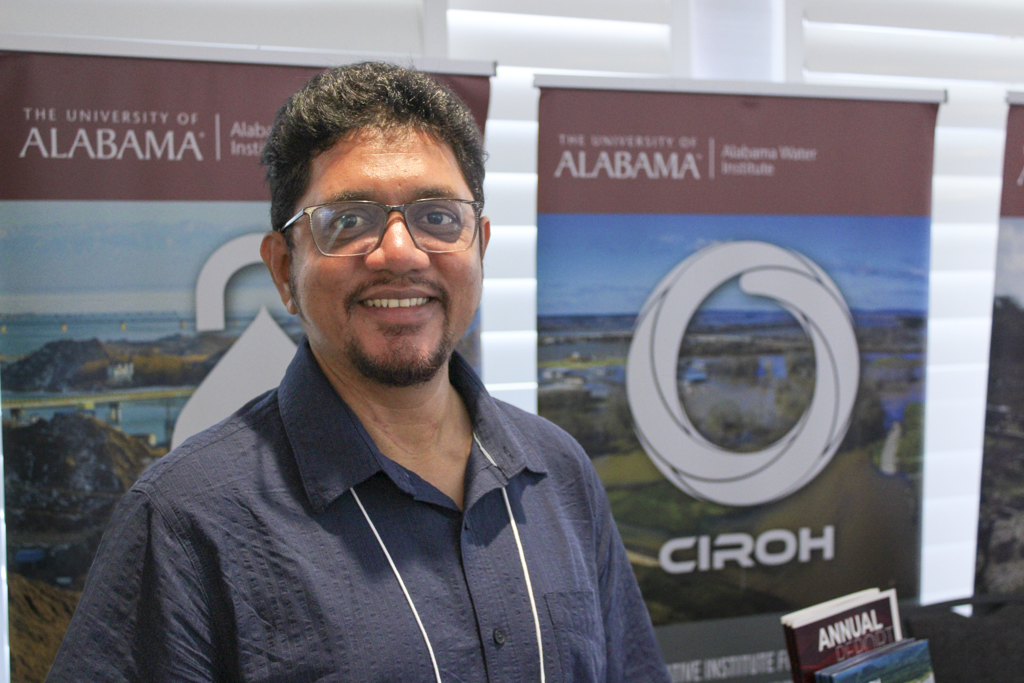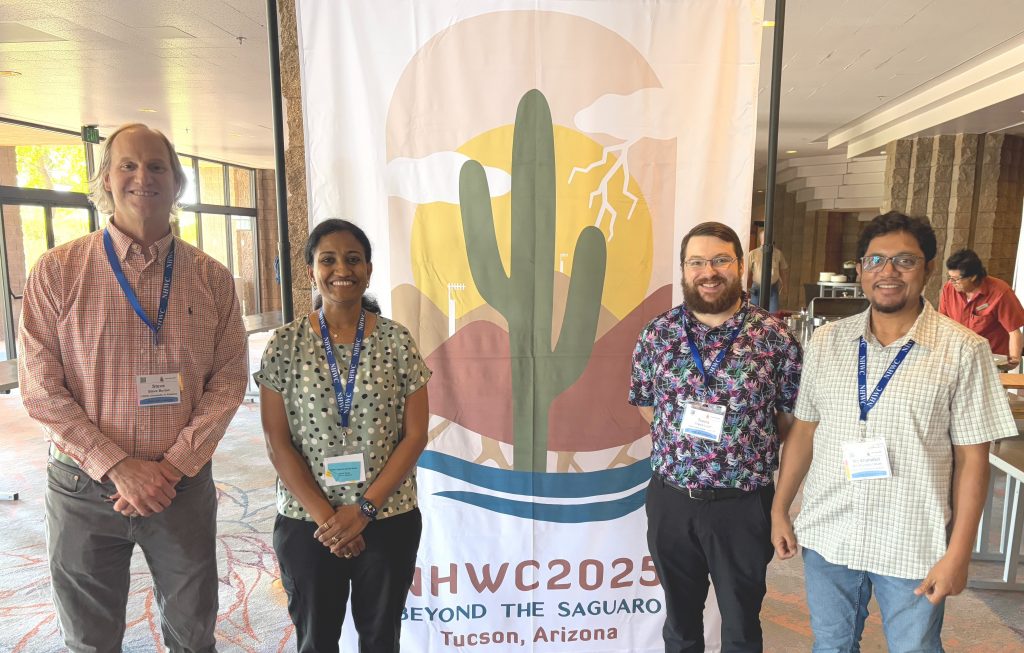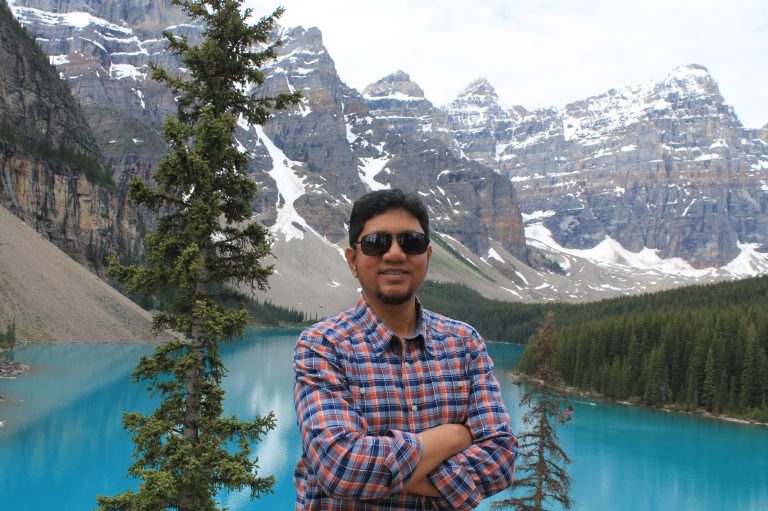TUSCALOOSA, Ala. – When Dr. Md Shahabul Alam joined the Alabama Water Institute in 2022, he expected a few years of postdoctoral research, the chance to strengthen his publication record and eventually a faculty opportunity. What he did not anticipate was how quickly his path would accelerate thanks to supportive mentorship, a thriving research community and the breadth of opportunities available through the Cooperative Institute for Research to Operations in Hydrology, or CIROH.

Alam, who earned his Ph.D. in civil, geological, and environmental engineering from the University of Saskatchewan, arrived in Tuscaloosa to work on NOAA’s National Integrated Drought Information System project. Under the guidance of Dr. Steven Burian, he focused on developing new techniques to characterize drought in the Great Salt Lake Basin. That project soon led him deeper into CIROH research, where he transitioned into a research scientist role just one year later.
“Steve was very clear from the very beginning about my career goal, what I want to be and where I want to be,” Alam said. “He always tried to give me the support that I needed so I can grow, that I needed to find the position and be competitive for that.”
Building Research and Leadership Skills
One of those opportunities came in the form of a major CIROH project evaluating hydrologic model structures within the NextGen framework. Alam helped write the initial white paper and full proposal, which was ultimately funded, then laid out the research plan that would guide colleagues, postdocs and visiting scholars.
“People know that someone has developed a tool, you can see it, or someone published a paper,” said Alam. “But when you work in the background, it’s usually unrecognized. I know there are many people out there in CIROH working hard day and night to support the people on the projects, but they are behind the screen.”
His experience was not only about advancing hydrologic science, but also about learning how to lead. By coordinating collaborators and mentoring peers, he gained insight into the kind of faculty role he desired.
Mentorship That Matters

Throughout his postdoctoral and research scientist years, Alam credits Burian and AWI with shaping his career trajectory. He was encouraged to teach guest lectures, present at conferences and explore new lines of research, all experiences that prepared him for life as a professor.
“I will take the opportunity to tell you that I didn’t expect this position to come this soon,” he said. “I was expecting something to happen next year when I would have some more publications, more accomplishments. Maybe this is some potential that really shows my research skill and research profile that I have developed at CIROH.”
He also found encouragement in seeing peers chart similar paths.
“I have seen one of my colleagues—he was a student with Steve, then he worked as a postdoc, then a research scientist at AWI with Steve,” Alam said. “He had a career path similar to mine. That was encouraging, that someone is working with Steve, working with CIROH and I can also achieve that.”
A New Chapter in Florida
This fall, Alam began as a tenure-track assistant professor in the Department of Civil Engineering and Construction Management at the University of West Florida. He started by teaching multiple courses over the semester while helping shape the department as it grows into a standalone program. Even though this new direction is underway, Alam plans to continue collaborating within CIROH.
“I’ll be happy to be involved,” he said. “CIROH has such a big mission that as a hydrologist and hydrologic modeler, it cannot really be disconnected. This is something I want to be connected with throughout my career.”
Carrying AWI’s Mission Forward

Alam points to AWI’s unique blend of academia, government and industry partners as crucial to his professional development. The opportunities to work across disciplines, collaborate with federal agencies and gain exposure to both applied and academic perspectives gave him a foundation he believes will serve him well in the classroom and the lab.
“It is unique in the sense that we have people from all walks of hydrologic disciplines,” Alam said. “As people from academia, we focus so much on research. However, people from industry know how to develop tools that can be available communities. Not everybody will be in the same environment, but AWI is helping people adapt and learn about each area.”
While Alam has said goodbye to Tuscaloosa, he knows the connections will remain strong. He plans to return for CIROH meetings and conferences, continuing to contribute to the community that helped launch his career.
“Every moment is memorable,” he said. “However, if I have to pick one, I’ll miss the CIROH Science Meeting a lot. It’s such a big gathering where all the consortium partners come together, and it’s a huge opportunity to build relationships and develop concepts, research ideas and proposals. I will be back, though.”
As Alam takes his next step, his journey is a testament to how AWI and CIROH are cultivating the next generation of water leaders, equipping them with the skills, mentorship and vision to carry the mission forward.